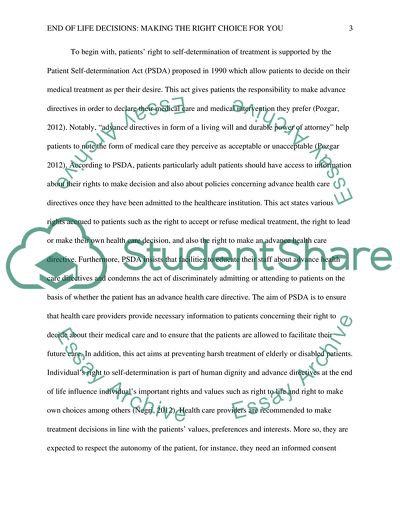Cite this document
(“End of Life Decisions: Making the right choice for you Research Paper”, n.d.)
End of Life Decisions: Making the right choice for you Research Paper. Retrieved from https://studentshare.org/nursing/1625843-end-of-life-decisions-making-the-right-choice-for-you
End of Life Decisions: Making the right choice for you Research Paper. Retrieved from https://studentshare.org/nursing/1625843-end-of-life-decisions-making-the-right-choice-for-you
(End of Life Decisions: Making the Right Choice for You Research Paper)
End of Life Decisions: Making the Right Choice for You Research Paper. https://studentshare.org/nursing/1625843-end-of-life-decisions-making-the-right-choice-for-you.
End of Life Decisions: Making the Right Choice for You Research Paper. https://studentshare.org/nursing/1625843-end-of-life-decisions-making-the-right-choice-for-you.
“End of Life Decisions: Making the Right Choice for You Research Paper”, n.d. https://studentshare.org/nursing/1625843-end-of-life-decisions-making-the-right-choice-for-you.


